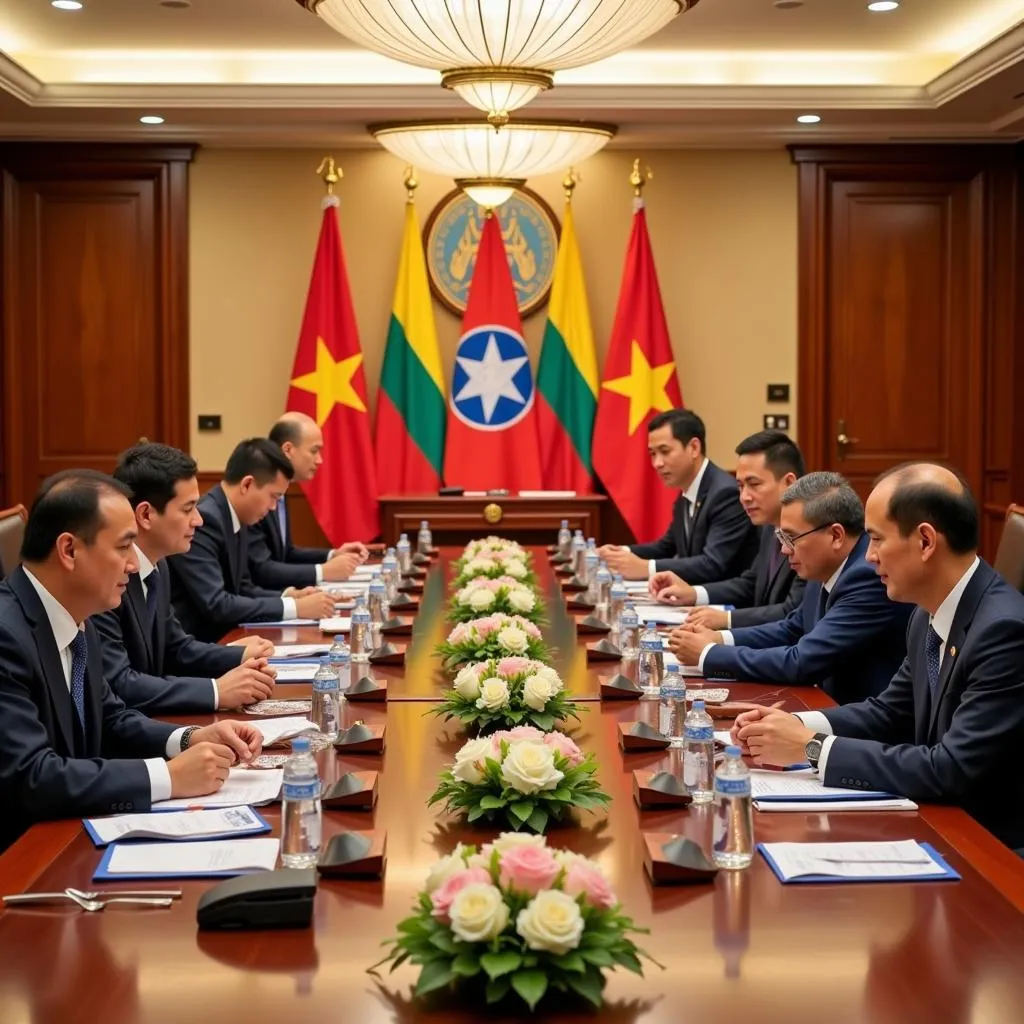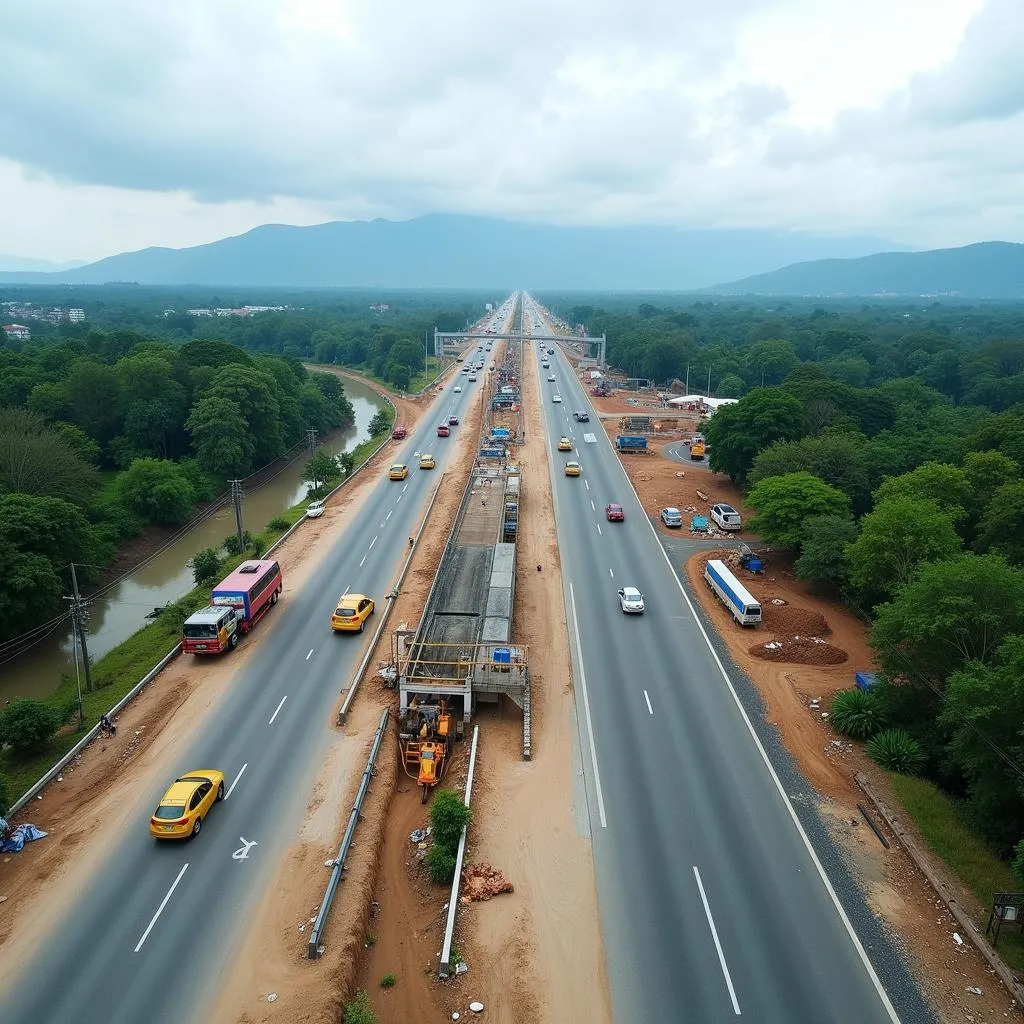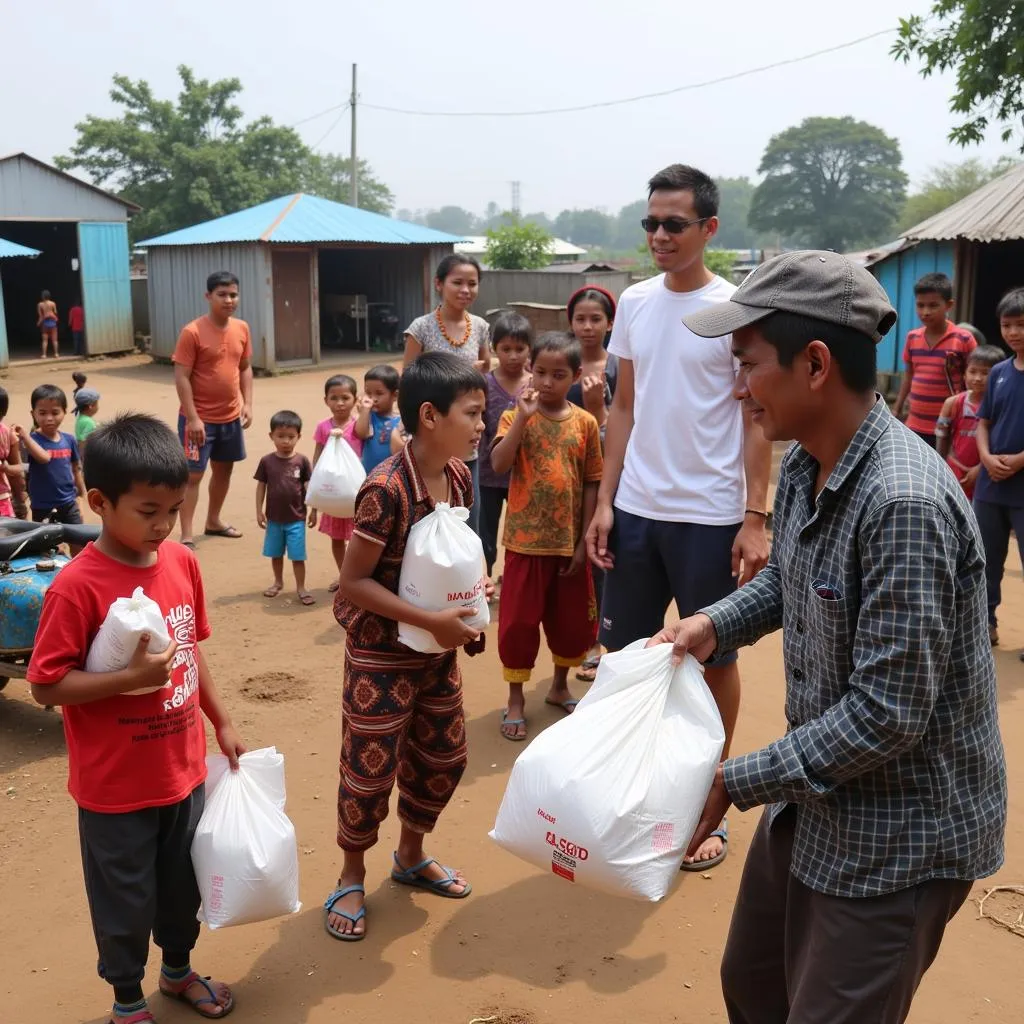Asean And Myanmar have shared a complex relationship for decades. Myanmar, also known as Burma, officially joined the Association of Southeast Asian Nations (ASEAN) in 1997. This move was intended to foster regional cooperation, economic growth, and political stability. However, the path has been fraught with challenges, particularly concerning Myanmar’s internal political situation.
Myanmar’s Internal Struggles and ASEAN’s Role
Myanmar’s internal struggles, marked by ethnic conflicts and a history of military rule, have posed significant dilemmas for ASEAN. The bloc’s principle of non-interference in the internal affairs of member states has often been tested by the situation in Myanmar.
 ASEAN leaders meeting with Myanmar representatives
ASEAN leaders meeting with Myanmar representatives
ASEAN has faced criticism for its perceived inaction and its engagement with the Myanmar government. Critics argue that the bloc’s approach has done little to improve human rights and democracy in Myanmar. However, proponents of engagement maintain that it is the most effective way to encourage positive change and prevent further isolation of Myanmar.
Economic Ties and Development Challenges
Despite the political complexities, ASEAN and Myanmar have sought to strengthen economic ties. Myanmar’s inclusion in ASEAN has opened up opportunities for trade, investment, and infrastructure development.
 Construction of a highway in Myanmar
Construction of a highway in Myanmar
However, significant challenges remain. Myanmar lags behind many ASEAN member states in terms of economic development, and poverty and inequality are persistent issues. ASEAN has implemented various initiatives to support Myanmar’s economic development, including capacity-building programs and trade facilitation measures.
The Rohingya Crisis and International Pressure
The Rohingya crisis, which escalated in 2017, has cast a long shadow over ASEAN-Myanmar relations. The displacement of hundreds of thousands of Rohingya Muslims from Myanmar’s Rakhine State sparked international condemnation and raised questions about ASEAN’s response.
 Distribution of humanitarian aid to Rohingya refugees
Distribution of humanitarian aid to Rohingya refugees
ASEAN has taken some steps to address the crisis, including facilitating humanitarian assistance and establishing a coordinating center for humanitarian aid. However, the bloc has been criticized for not taking a stronger stance against the Myanmar government’s actions.
The Way Forward: Dialogue, Cooperation, and ASEAN’s Principles
The future of ASEAN-Myanmar relations remains uncertain. ASEAN continues to engage with Myanmar, emphasizing dialogue, cooperation, and adherence to its principles of non-interference and consensus-based decision-making.
The bloc faces the delicate task of balancing its principles with the need to address the complex challenges in Myanmar. Finding a way forward will require sustained diplomatic efforts, a commitment to human rights, and a focus on the well-being of all people in Myanmar.
Conclusion
The relationship between ASEAN and Myanmar is multifaceted and continues to evolve. While challenges remain, particularly concerning Myanmar’s internal political situation and the Rohingya crisis, ASEAN remains committed to engaging with Myanmar and supporting its progress towards peace, stability, and prosperity. Finding a sustainable solution will necessitate a balanced approach that upholds ASEAN’s principles while addressing the legitimate concerns of the international community.
If you need further information or assistance regarding ASEAN, please contact us at:
Phone: 0369020373
Email: aseanmediadirectory@gmail.com
Our team is available 24/7 to assist you. You can also visit us at our office located in Ngọc Liễn Village, Hiệp Hòa, Bắc Giang, Vietnam.


